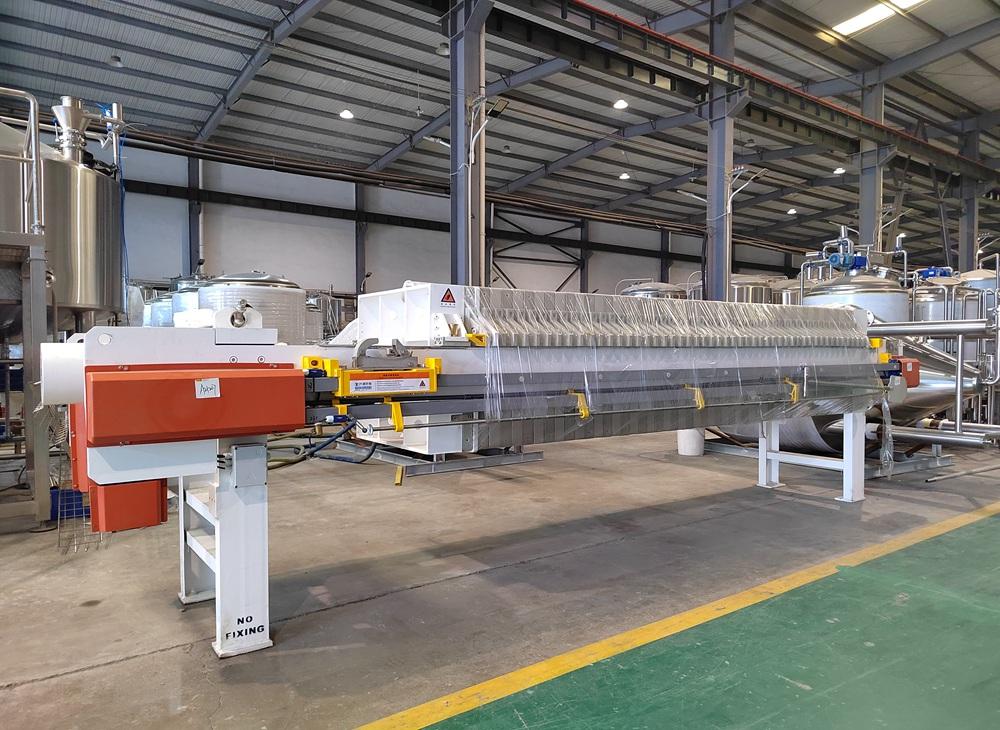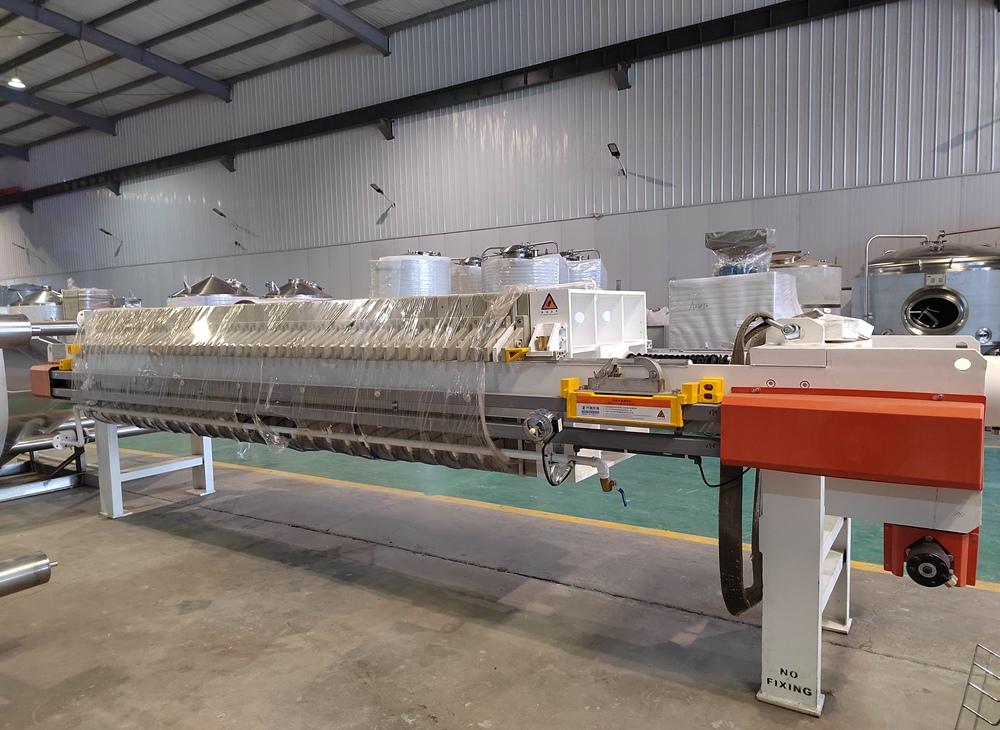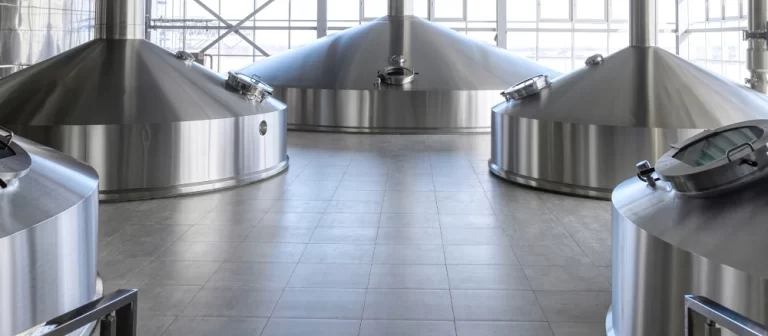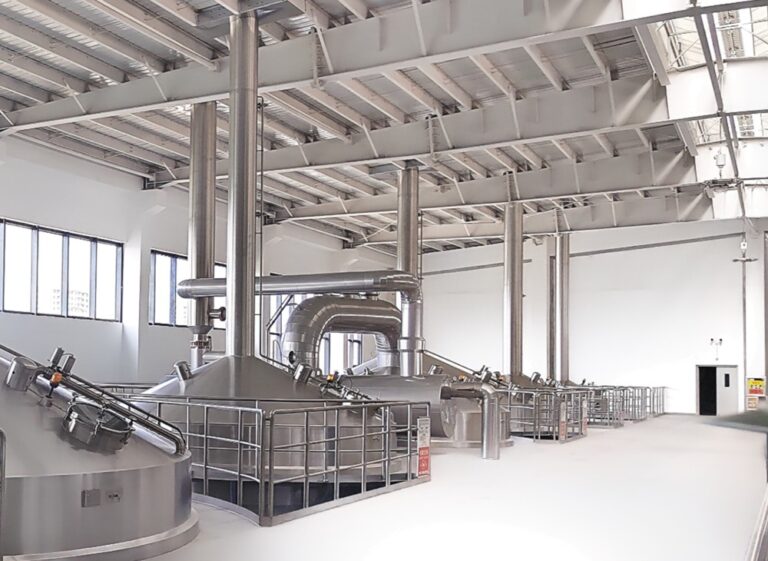Filtration plays a vital role in the brewing process, directly influencing the clarity, stability, and overall flavor profile of the final beer. Among the various wort separation and filtration techniques used in the industry, the filter press and lauter tank are two widely adopted solutions. Each system offers unique characteristics, benefits, and limitations, making them better suited to different production scales, brewing philosophies, and operational needs.

This article will compare these two filtration methods, focusing on their working principles, efficiency, costs, and applicability in the brewing industry.
1. Understanding the Filtration Process in Brewing
Before diving into the comparison, it is essential to understand why filtration is needed in beer production. After fermentation, beer contains suspended yeast, proteins, hop residues, and other particles that can cause haziness. While some styles, like hazy IPAs, intentionally retain some turbidity, most traditional styles require filtration to achieve a clear and stable final product.
Filtration improves beer’s visual appeal, shelf life, and consistency, making it a critical step in commercial brewing. The two main types of filtration equipment—filter press and lauter tank—offer different approaches to achieving these goals.
2. Filter Press: Working Principle & Features
A filter press consists of multiple filter plates arranged in a frame, with filter media (such as cloth or paper) placed between them. The beer is pumped through the press under pressure, and the solid particles are trapped by the filter media while the clarified liquid passes through.
Advantages of Filter Press in Brewing:
High Filtration Efficiency: Due to the multiple filter layers, a filter press can remove fine particles more effectively than some other filtration methods.
Consistent Clarification: It provides a high degree of clarity, making it suitable for breweries that prioritize bright beer.
Reusable Filter Plates: Unlike disposable filters, the plates in a filter press can be cleaned and reused multiple times, reducing long-term costs.
Customizable Filtration Level: By using different filter media, breweries can adjust the filtration precision according to beer styles and requirements.
Disadvantages of Filter Press:
Higher Initial Investment: A filter press is more expensive upfront compared to a filtration tank, which may not be ideal for smaller breweries.
Complex Operation & Maintenance: It requires more expertise to operate and maintain, including regular cleaning of plates and replacing filter media when needed.
Potential Oxygen Pickup: If not properly handled, the filtration process may introduce oxygen, which can negatively affect beer freshness.

3. Lauter Tank: Working Principle & Features
A lauter tank (or kieselguhr filter tank) is a simpler and more traditional method that uses filter media such as diatomaceous earth (DE) or perlite. The unfiltered beer passes through a layer of filter material inside the tank, trapping unwanted solids and allowing clarified beer to pass through.
Advantages of Lauter Tank in Brewing:
Lower Initial Cost: Filtration tanks are generally more affordable than filter presses, making them a popular choice for small to medium-sized breweries.
Easier to Operate: The process is more straightforward, requiring less specialized training compared to a filter press.
Good for High-Volume Filtration: When used with diatomaceous earth, a lauter tank can handle large volumes of beer effectively.
Disadvantages of Lauter Tank:
Less Effective for Fine Filtration: While it removes larger particles effectively, it may not achieve the same level of clarity as a filter press for very fine particulates.
Requires Regular Replacement of Filter Media: Kieselguhr or perlite must be replaced frequently, adding to operational costs and maintenance time.
Potential Health Concerns: Diatomaceous earth can be hazardous if inhaled, requiring proper handling and protective equipment.
4. Comparison: Which One is Better for Brewing?
a) Filtration Efficiency
Filter Press: Offers higher precision filtration, removing fine yeast and protein particles. Ideal for breweries producing pale lagers, pilsners, and other bright beers.
Lauter Tank: More suitable for general clarification, leaving some haze if desired. Works well for ales, wheat beers, and hazy styles.
b) Cost Considerations
Filter Press: Higher upfront cost but lower long-term operational expenses due to reusable filter plates.
Filtration Tank: Lower initial cost but ongoing expenses due to the need for continuous replacement of filter media.
c) Scalability & Brewery Size
Filter Press: Best suited for medium to large breweries that need precise filtration and high clarity.
Lauter Tank: Ideal for smaller craft breweries with moderate filtration requirements.
d) Ease of Use & Maintenance
Filter Press: Requires specialized knowledge, proper cleaning, and careful handling to avoid oxygen contamination.
Filtration Tank: Simpler operation but requires frequent replenishment of filter media.
5. Conclusion: Choosing the Right Filtration Method
The choice between a filter press and a lauter tank depends on a brewery’s size, budget, and beer style.
.jpg)
For breweries focusing on highly clear beer (lagers, pilsners, filtered IPAs) → A filter press is the better option despite its higher initial cost.
For small to medium-sized craft breweries producing ales, wheat beers, or hazy IPAs → A lauter tank is a cost-effective and easier-to-operate choice.
Both methods have their strengths, and some breweries even use a combination of both to optimize filtration for different beer styles. Ultimately, understanding the specific needs of the brewing process will help in selecting the right equipment for achieving consistent, high-quality beer.
Learn how Tiantai Beer Equipment not only manufactures top-quality brewing systems for producing flavor-rich beers, but also supports brewers in optimizing system configuration, maximizing process uptime, and minimizing beer loss during production.
Feel free to contact Hubert anytime—we’re here to help!
Contact: Hubert
Email: [email protected]


